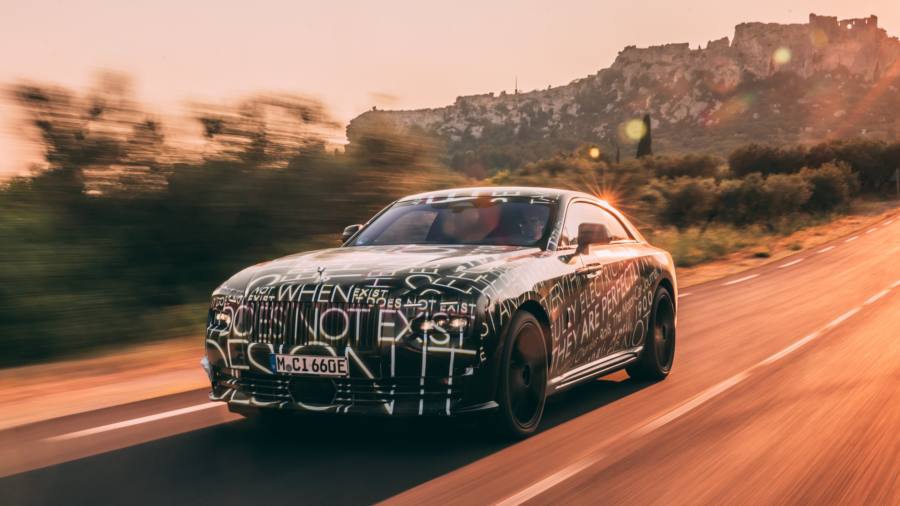
Rolls-Royce will start selling its first fully electric vehicle next year, as the ultra-luxury carmaker commits to ditching combustion engines by 2030 to comply with regulations and changing customer demand.
The 116-year-old company based in West Sussex said the first Spectre electric cars, priced between £250,000 and £500,000, would be delivered to customers at the end of next year.
“Our products aren’t seen as a means of transportation — they need to please,” said Torsten Müller-Ötvös, chief executive of Rolls-Royce Motor Cars, which last year sold just over 5,500 vehicles.
“Our clients say ‘I want to drive emissions-free in urban city centres’ — that’s emotionally very different,” he added, explaining that Rolls-Royce now had the youngest customers out of its owner BMW’s brands, including the Mini.
Sales of Rolls-Royce cars such as the Phantom, Cullinan and Ghost models jumped by almost half last year, which Müller-Ötvös attributed to the company’s wealthy clients, who own an average of seven cars on the grounds that “life can be short”.
The company was largely able to avoid the supply chain squeeze of semiconductors that hit the auto industry, partly because it makes relatively few vehicles and therefore needs fewer chips.
Müller-Ötvös said Rolls-Royce had an advantage in the electric space compared with rival luxury sports car brands, which are synonymous with their revving engines. “Sports cars need to crack the sound, while for us, being without sound is part of the brand,” he said.
The European parliament has voted to, in effect, ban sales of new petrol and diesel cars in its region from 2035, a target challenged by Germany. The UK has said it will ban the sale of new petrol and diesel cars from 2030, with some new hybrid models allowed to be sold until 2035.
Oliver Zipse, chief executive of BMW, said he would not commit to one single “drive trend” in the future, adding that the company was expecting to launch a hydrogen car in roughly five years.
Access to charging infrastructure, which Zipse said was expanding too slowly, particularly in the UK, would remain a hindrance to the full-scale adoption of fully electric cars.
But, speaking at the unveiling of Rolls-Royce’s new Spectre model, he said that wealthy drivers were unlikely to be reliant on public charging points.
Asked whether he would consider following in the footsteps of Volkswagen, which has just listed part of its luxury brand Porsche to help pay for its electric transition, Zipse said: “Where is the corresponding problem? Access to capital is no problem [for us] — I can already fund the electrification.”